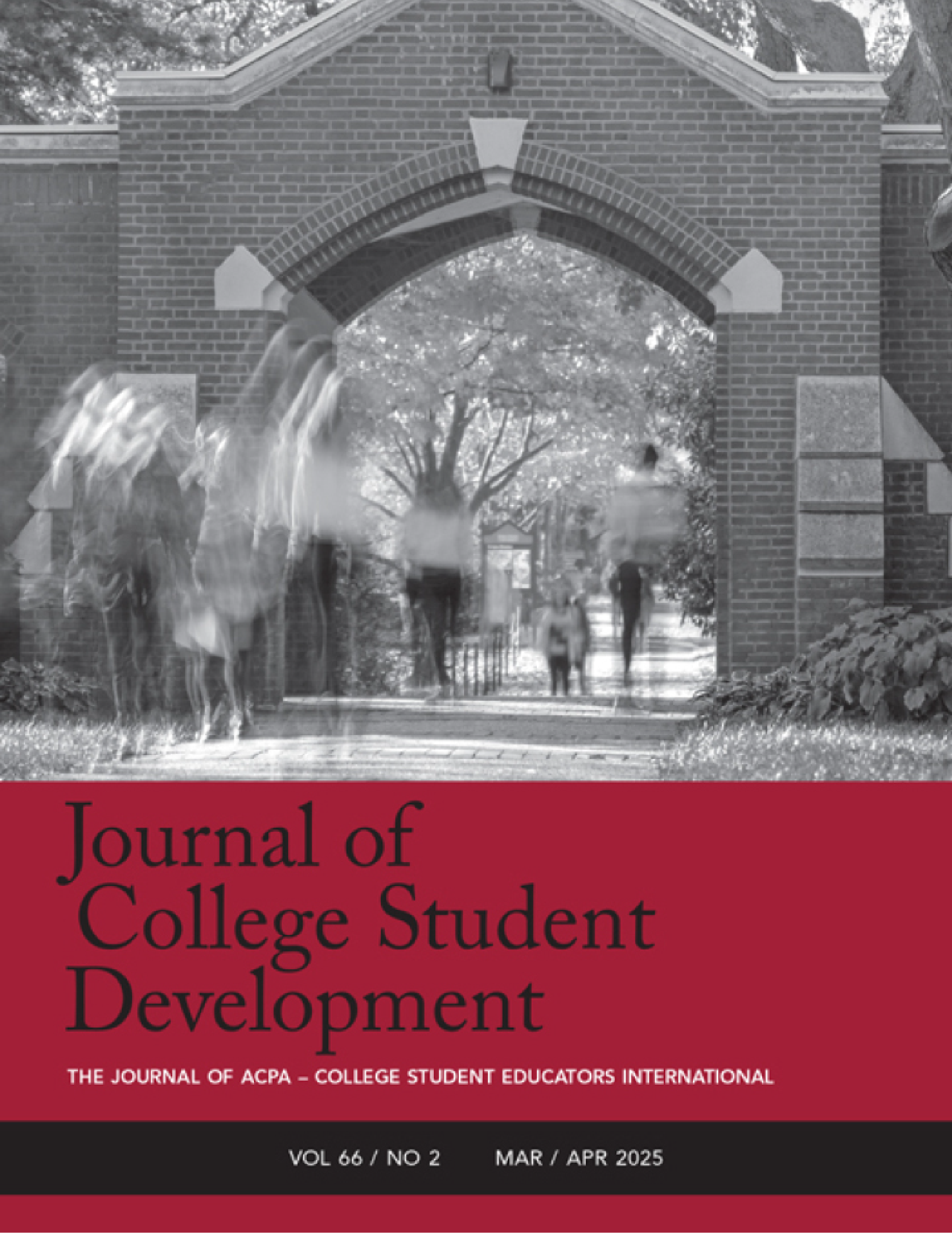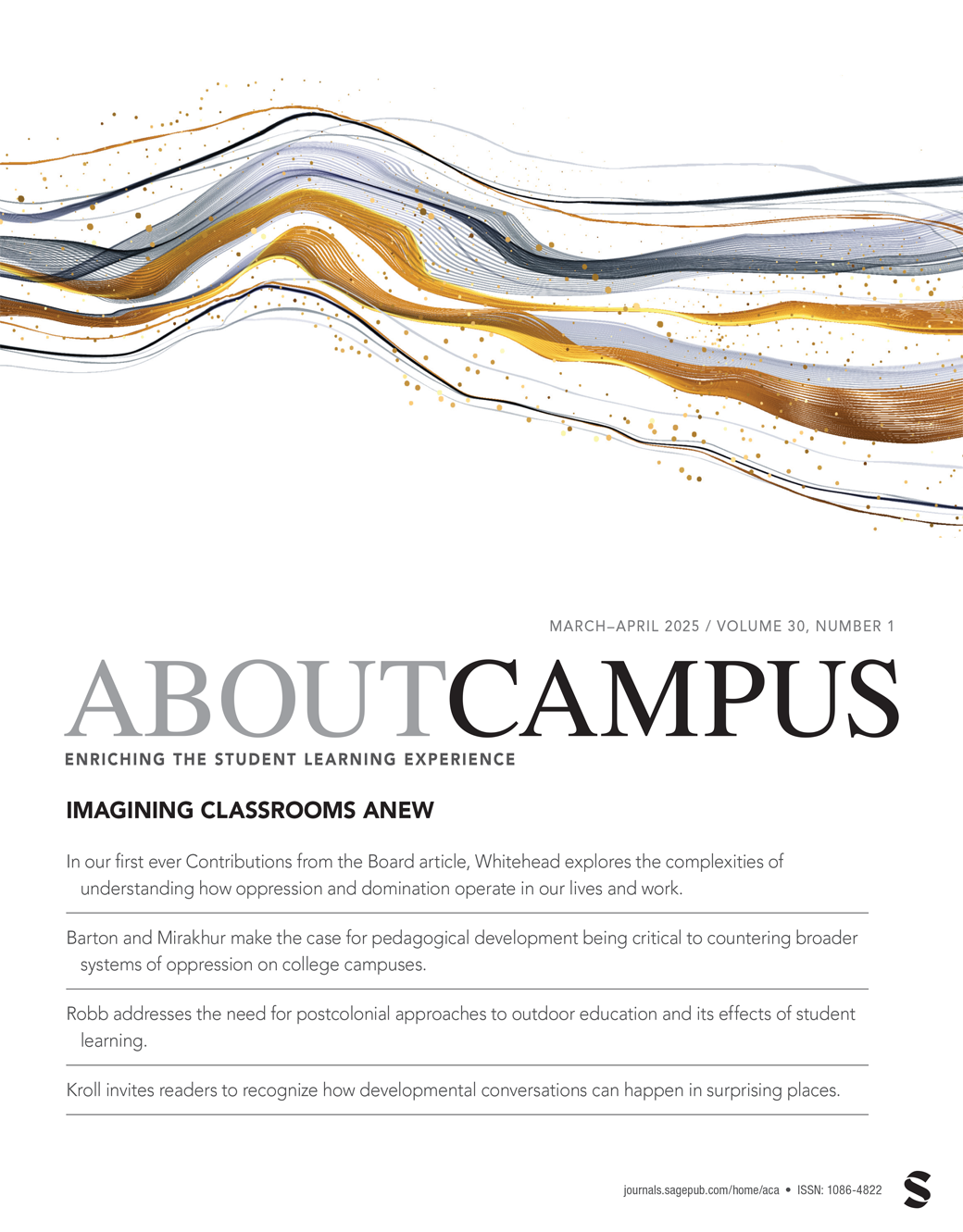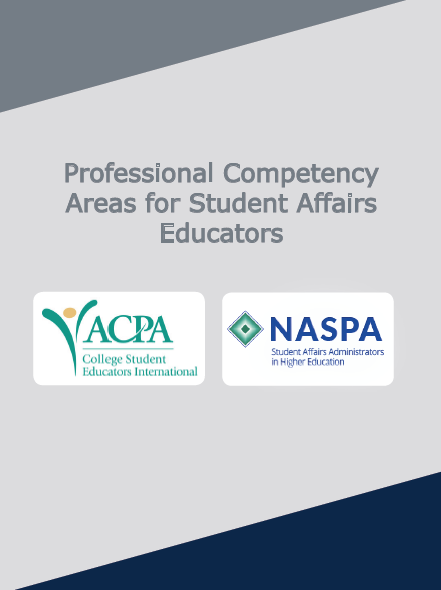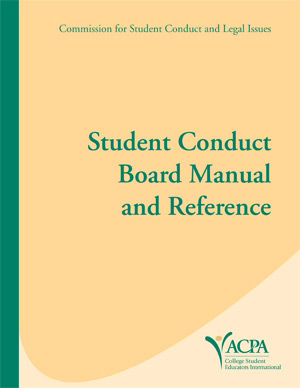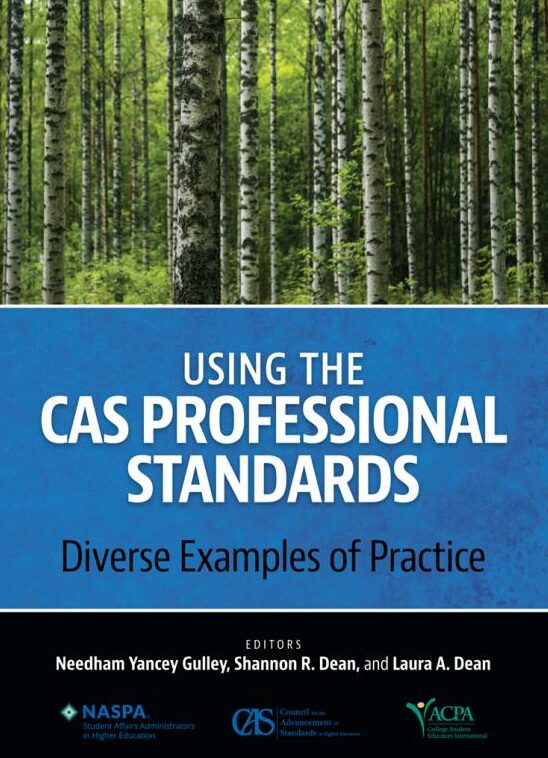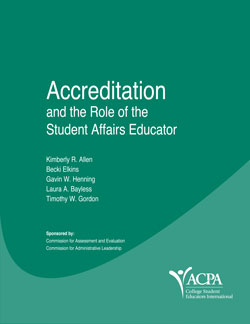ACPA Publications
The Scholarship, Stories, and Strategic Thinking Shaping Higher Education
Discover ACPA’s robust collection of publications—from peer-reviewed journals to timely thought leadership—designed to support student affairs professionals, scholars, and changemakers across the field.

ACPA is committed to sharing the most up-to-date scholarly research and practice through our three main journal and publication sources; the Journal of College Student Development, About Campus, and Developments. Click the link below to learn more about each publication and how to submit your research and scholarship for publishing.
ACPA Books
Since the early 1960s, the Books and Media Board has nurtured the development and publication of original content by authors with broad appeal to an interdisciplinary audience of researchers, scholars, and practitioners in the field of student affairs as well as the broader context of higher education. Publication themes ranged from history and systems, to theory, to practice applications.
Today, we continue to support authors who wish to publish books in collaboration with ACPA. New authors/editors working with ACPA Books receive significant guidance and assistance in the publishing process that is not available when working directly with a publisher. For more experienced authors/editors, publishing with ACPA Books is a great way to “give back” to the organization. As such, royalties from all books published through ACPA Books are returned to the association. Authors benefit by having their works published, which may enhance their professional reputations and lead to greater professional opportunities for such activities as consulting, keynote speaking, and invited presentations.
We welcome submissions of book proposals on topics related to, but not limited to the following: student growth and development; diversity and equity in higher education; student access, success, and retention; mental health among college students; and campus safety.
Books & Thought Papers FAQ
Who can publish with ACPA?
Any ACPA member with an idea for publication is invited to submit a proposal. ACPA is particularly interested in receiving proposals from professionals motivated to complete a high-quality book or monograph, even if they do not have extensive prior publication records. The advantages of ACPA Publications Board publication are the rigorous standards used in the review process and the helpfulness of the ACPA Books Editor(s).
What types of proposals are accepted by ACPA?
ACPA Publications Board has been producing books and monographs since the early 1960s for use by individual student affairs professionals, graduate courses, and student affairs divisions or departments. The publication themes range from history to theory to practice applications. The reviewers look for proposals indicating high quality treatment of a subject for a particular audience in a length appropriate to the topic and approach. The Editorial Board strives to publish “cutting edge” information that is not available elsewhere. ACPA is committed to issues related to student learning, human development, diversity and equity, human dignity, community, and professional renewal. If you have a fresh approach to an old problem or a new approach that works, consider contacting the ACPA Books Editor(s) to discuss your idea!
What happens to my proposal after it is submitted?
After your proposal is received, the ACPA Books Editor(s) will work with the manuscript authors or editors to help prepare the proposal for submission to the publisher. The publisher will send it out for masked review to a set of reviewers identified as appropriate for the topic and structure of the proposal. The publisher will synthesize the reviews and provide feedback to the manuscript authors or editors, including a decision to accept, request revisions, or reject the proposal.
How long does the proposal review process take?
It takes approximately eight weeks from the time the publisher receives your proposal to have it reviewed. The time may vary depending on the number of proposals currently in the review process and variations among institutional calendars.
How much does it cost to submit to ACPA?
Nothing. ACPA does not charge individuals to submit or to publish. Manuscripts are accepted on the basis of quality, the prospect of adding to the knowledge of the profession, and a potential readership sufficient to cover production costs.
What kind of marketing does ACPA do for its products?
Each product has an individualized marketing plan, tailored to fit the specific needs and market of the individual product. The plan usually includes some combination of ads in the Journal of College Student Development, Developments, and other publications in the field; special mailings to our members and other student affairs and higher education professionals; and displays of the book or monograph at our own conferences and other conventions. All products published by ACPA are highlighted in an annual publication list and on the ACPA website.
Will I get rich publishing with ACPA?
No. ACPA authors are not paid royalties. ACPA Publications Board accepts new projects with the minimal financial expectation of breaking even with production costs, and a substantive portion of ACPA’s Publications Board budget comes from annual sales. However, you will be adding to the body of knowledge in the field, gaining professional credentials from a scholarly press, and helping your fellow professionals. ACPA holds the copyright to all materials published by ACPA.
Submitting a Proposal
The criteria used to evaluate your proposal will include:
- The topic’s contribution to the field
- The author’s/authors’ ability to present new and significant information and observations about the topic
Please prepare a prospectus that addresses the following points:
Overview:
- What is the proposed title and subtitle of your book? (Please keep in mind clear and searchable keywords rather than catchphrases.)
- Include a brief description of the book in which you explain the main purpose, thesis, and general plan of the book.
- Please also explain the rationale; why do you think there is a need for this book?
- Please specify the details of your finished book, including the expected number of words, the number and type of figures/tables, and your planned completion date. (It is not necessary to have completed your book before you contact us. If you have, please do not send the entire manuscript. Instead, please draft a proposal using these guidelines).
- Include a sample chapter and/or a representative writing sample.
Contents:
- Include a proposed table of contents with a thorough paragraph describing each chapter. Be sure to include reference to any literature, research, or theory you plan to cover in each chapter. [Note that an ideal length for a Higher Education professional book (a book that identifies and solves a problem, is accessible, written for busy practitioners in mind) would be 60k – 90k words.]
- Are you including any special features or pedagogical tools in the book? (These can include chapter objectives, end of chapter questions, call-out boxes, etc.)
Market:
- Please discuss the intended audience for your book. Is it written primarily for scholars (if so, what disciplines), professionals (if so, which fields), or students (if so, what level)? Please be as specific and realistic as possible and remember few, if any, books appeal to all of the above simultaneously.
- List any courses (including the level) for which this book would be relevant.
- List three key selling points for your book.
- List a few specific journals, publications, and/or scholarly groups or divisions, you think this book would most appeal to.
Competition:
- List three or four similar titles (include author, title, publication date).
- Please explain how your book is like, or unlike, each of these books.
Other Relevant Information:
- Please provide a brief blurb (200 words max) about your book that would draw a reader in. Focus on telling the reader what the book will do, how it does this and why this is important, rather than foregrounding the research or field. Think of this as an ‘elevator pitch’ for the book.
- Please provide us with a brief biography of yourself (and any co-authors).
- If this book will be an edited collection, please include a short biography (including current institution and title) for each of these contributors.
- List three to five people who would make qualified reviewers for the proposal (preferably individuals whom you do not know personally). Though we do not always use these suggestions, they help give us an idea of where you think your ideas fit into current debates.
- Finally, please tell us whether or not your proposal has been submitted to other publishers and, if so, to whom.
For more information or to submit proposals, please download our Publishing with ACPA Books Guide (PDF).
Please contact the ACPA Books Editors, Laila McCloud (mcclolai@gvsu.edu) and Kevin Wright (k.wright6@snhu.edu), with questions.
purchase ACPA books
titles available through Rowman & Littlefield
- Maybe I Should…: Case Studies on Ethics for Student Affairs Professionals, Second Edition
- Maybe I Should. . .Case Studies on Ethics for Student Affairs Professionals
- Making Good on the Promise: Student Affairs Professionals With Disabilities
- College Student Death: Guidance for a Caring Campus
titles available through Routledge Publishing
- Fostering Equity and Inclusion in Graduate Education: Key Strategies and Perspectives
- Integrating Social Justice into Student Affairs
- Coordinating Divisional and Departmental Student Affairs Assessment
- Law and Ethics in Academic and Student Affairs Developing an Institutional Intelligence Approach
- Assessing and Improving Student Organizations A Guide for Students
- Assessing and Improving Student Organizations Student Workbook
- College in the Crosshairs An Administrative Perspective on Prevention of Gun Violence
- Debunking the Myth of Job Fit in Higher Education and Student Affairs
- Empowering Women in Higher Education and Student Affairs Theory, Research, Narratives, and Practice From Feminist Perspectives
- Enough Is Enough A Student Affairs Perspective on Preparedness and Response to a Campus Shooting
- Facilitating Intergroup Dialogues Bridging Differences, Catalyzing Change
- Identity Interconnections Pursuing Poststructural Possibilities in Student Affairs Praxis
- Making Meaning: Embracing Spirituality, Faith, Religion, and Life Purpose in Student Affairs
- Multicultural Student Services on Campus: Building Bridges, Re-visioning Community
- Student Affairs for Academic Administrators
- The Art of Effective Facilitation: Reflections From Social Justice Educators
- The First Generation Student Experience: Implications for Campus Practice, and Strategies for Improving Persistence and Success
- Trans* Policies & Experiences in Housing & Residence Life
- Why Aren’t We There Yet?: Taking Personal Responsibility for Creating an Inclusive Campus
- Working With Students in Community Colleges: Contemporary Strategies for Bridging Theory, Research, and Practice
ACPA publications
The ACPA Publications and Thought Papers below are available for download for ACPA Members within the ACPA Member portal under the Files tab.
- 1937 Student Personnel Point of View
- 1949 Student Personnel Point of View
- A Bold Vision Forward: A Framework for the Strategic Imperative for Racial Justice and Decolonization
- Accreditation and the Role of Student Affairs Professionals
- ACPA Racial Justice & Decolonization Workbook
- ACPA/NASPA Professional Competency Areas for Student Affairs Educators
- ACPA/NASPA Professional Competencies Rubrics
- Alcohol Mixed with High Levels of Caffeine: What Campus Professionals Need to Know
- ASK Needs Assessment
- ASK Standards
- Assessment in Practice—A Companion Guide to the ASK Standards
- Beyond Coming Out: New Insights about GLBQ College Students of Color
- Beyond Compliance: Addressing Sexual Violence in Higher Education
- Campus Racial Justice and Decolonization Expectations Project
- CAS Standards
- Collaborative Priorities and Critical Considerations for Leadership Education
- Creating Inclusivity While Providing Accommodations: A Practical Guide to Champion Individuals with
- (Dis)abilities on Campus
- Developmental Pathways to Trans Inclusion on College Campuses
- From Remediation to Graduation, 2015
- Global Diversity and Identity Benchmarks, 2016
- Graduate International Teaching Assistants’ Social and Cultural Navigation of the U.S. University Classroom
- Powerful Partnerships: A Shared Responsibility for Learning
- Principles of Good Practice In Student Affairs
- Professional Preparation of New Student Affairs Professionals: The Shared Responsibility between HE/SA
- Faculty and Senior Student Affairs Professionals
- Reflections on the 75th Anniversary of The Student Personnel Point of View
- Report on 21st Century Employment in Higher Education
- Shifting Language from Multicultural Competence to Consciousness
- Student Conduct Board Manual
- Student Development in Tomorrow’s Higher Education: A Return to the Academy A Return to the Academy
- Student Learning Outcomes for Sustainability: Assessment Materials Guidebook
- The PTP Model: Practice-to-Theory-to-Practice
- The Student Learning Imperative: Implications for Student Affairs
- Toward a Sustainable Future: The Role of Student Affairs in Creating Healthy Environments, Social Justice, and Strong Economies
DIGITAL & HARDCOPIES AVAILABLE FOR PURCHASE
Click the ACPA Member or Non-Member links for corresponding order forms.

Digital Only
Non-Members: $9.99
Available to purchase through NASPA
Digital Only
Non-Members: $9.95
Digital Only
Non-Members: $9.95

